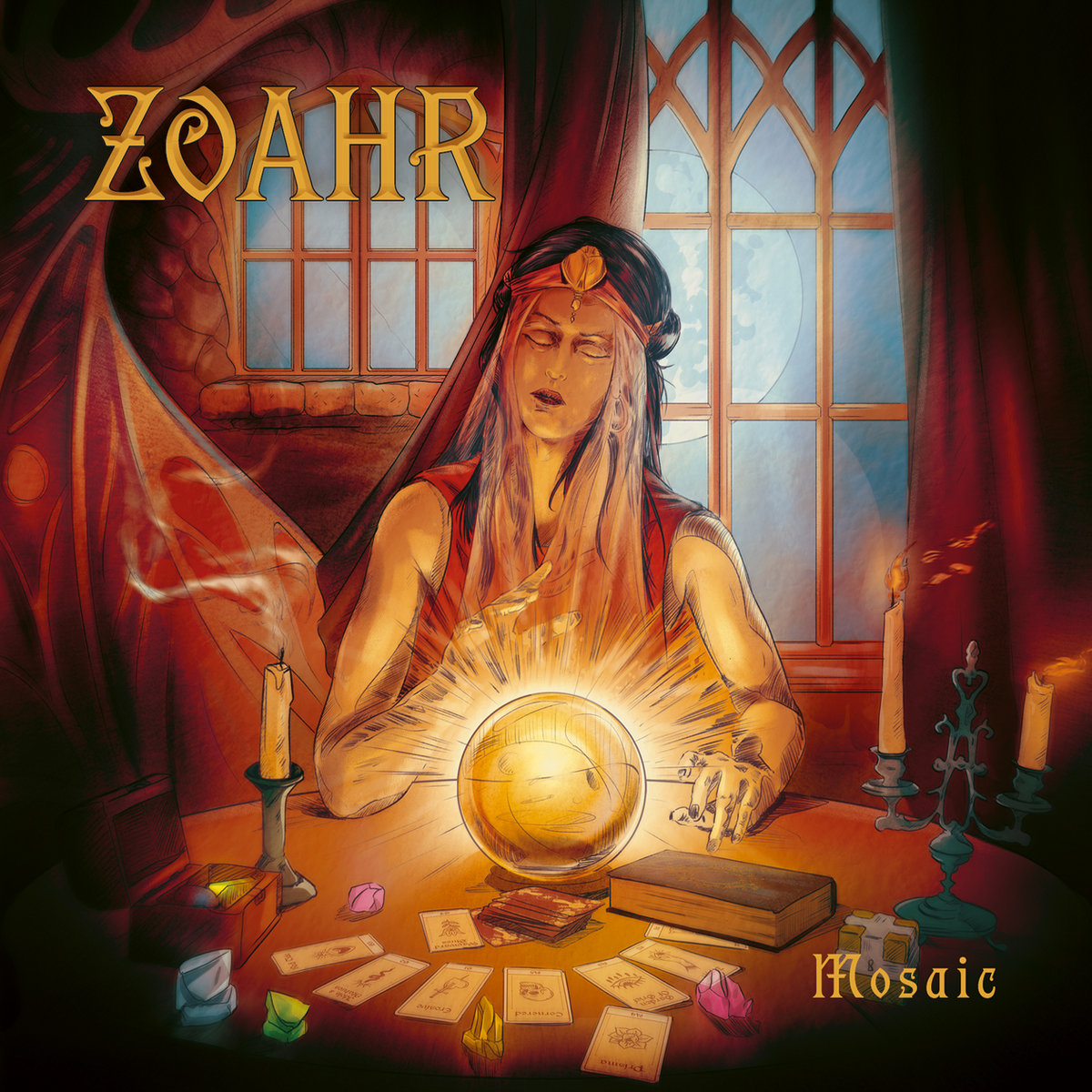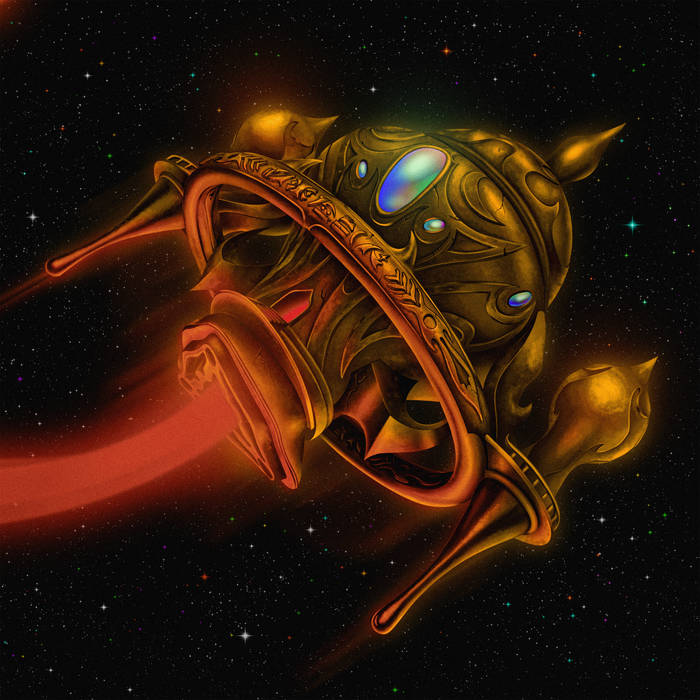
The Finnish band Craneium plays a strange yet enjoyable blend of Beatles-esque psychedelia and riff-driven doom. Their music carries weight, yet the vocal melodies remain highly melodic. They are a refreshing addition to today’s somewhat more conservative stoner underground. Check out this not-so-short interview!
First of all, tell us a little about the band's beginnings! How did you meet, and what inspired you to make music together?
Hello! Thanks for having us. Craneium was formed when we were university students in Turku, Finland. Initially, our goal was to play heavy, fuzz-filled music inspired by doom, desert rock, and retro-sounding bands that were gaining attention at the time.
Over the years, we've had a few bass player changes, but the core of the band has always been Martin, Andreas, and Joel. An interesting fact: everyone who has ever been a member of the band studied music theory at university—except for our drummer, Joel.
The band name, Craneium, sounds quite mysterious. What’s behind it? Does it have a special meaning, or did it just sound cool?
Since we formed the band many years ago, the story of the name might vary depending on who you ask! But in short: we wanted a strong, one-word name, something that fit our music, like Dozer.
The word “Crane” has multiple meanings—it can refer to a machine used to lift heavy objects or a large bird. We combined this with “cranium” (skull) because we thought it sounded cool.
Your music strongly builds on the classic stoner rock and doom traditions while having a fresh, unique sound. How do you write your songs? Is your songwriting process more spontaneous or structured?
Thank you! We really appreciate that you understand what we’re trying to do. Our songwriting has evolved a lot over the years. In the beginning, we focused on writing heavy, fuzz-filled riffs and being part of the vibrant stoner rock scene—that was our main inspiration at the time.
We've always written a lot together, jamming and refining ideas as a group. Nowadays, we tend to record our ideas while jamming and then listen back to them. This process helps us recognize what works and what doesn’t. In this sense, our songwriting is still spontaneous—we write what excites us—but at the same time, it’s also structured, as we constantly strive to improve as musicians and refine our sound.
In November 2024, you released the single "Empty Palaces," which echoes some of your earlier material. Is this a one-time nostalgic throwback, or does it hint at a new direction? Since your last album, how do you see your own development? Is there a new direction you'd like to explore on the next release?
It’s interesting that you hear "Empty Palaces" as a nostalgic throwback! For us, it felt more like a step into ‘90s alternative rock territory. The song was recorded during the sessions for Point of No Return, but it didn’t make it onto the album. "Empty Palaces" seemed like a song that could stand on its own.
We are already working on our fifth album, but it’s always hard to predict the exact direction in advance. One thing is certain: we always strive to evolve—so you can expect some interesting ideas to emerge.
A previous article described The Narrow Line as a musical Odyssey, full of unexpected twists and emotional rollercoasters. Was this structure a conscious choice, or was it more of an instinctive creative process? I feel that your latest releases don’t follow this approach as much—am I wrong?
That’s an interesting observation! We wrote The Narrow Line quite some time ago, and since our albums take a long time to complete, it’s sometimes hard to remember what shaped them back then.
If I had to guess, I’d say we weren’t as conscious about songwriting back then as we are now. The Narrow Line was our second album, which in some ways was our first "real" album—the debut was more of a collection of songs written during the band’s formation, early gigs, and the development of our sound. That likely influenced how the album turned out.
Point of No Return contains only six tracks, yet it delivers a complete experience. Did you intentionally aim for this shorter but more intense structure?
Thank you! Yes, we preferred a short, impactful album over one that drags on and loses momentum. Our initial goal for Point of No Return was to create a tight, immersive experience where every song had its purpose.
Over time, our songwriting has become more direct—we focus on cutting the excess and making every moment count rather than adding songs just for the sake of it. We wanted to create a coherent journey where the intensity never drops. In the end, we felt that six tracks provided the perfect balance to deliver the intended experience.
The album title Point of No Return has a rather ominous tone. What does this phrase mean to you? Were you trying to capture something personal, or is it more of a global theme?
Some of us in the band were experiencing varying degrees of climate anxiety while writing Point of No Return, and that feeling naturally found its way into the music. As we worked on the album, it became increasingly clear that the overarching theme was humanity’s destructive impact on the only habitable planet we know.
The title reflects this urgent feeling—that we might be crossing an irreversible threshold, both environmentally and socially. It’s not just a personal reflection but a broader statement about where we’re heading as a species if things don’t change.
Finland is primarily known for its metal scene. How challenging is it for a stoner rock band to gain recognition in such an environment? Is there a strong underground scene, or have you found a larger audience abroad?
Finland actually has a strong underground scene beyond just traditional metal. Bands like Kaleidobolt, Thermate, Dö, Kaiser, and Demonic Death Judge all bring their unique approach to music while still fitting into the more psychedelic and underground side of the scene.
As for Craneium, we are part of Finland’s Swedish-speaking minority, which is why we also feel very at home in Sweden. Our sound is more melodic and less metal-oriented than many Finnish stoner rock bands, which might explain why we’ve built a strong connection with Swedish listeners. Our first two albums were released by the American label Ripple Music, which helped us build a following in the U.S. Many listeners there have stayed with us for years, and we still see a lot of interest from them. At the same time, we have a dedicated audience in Finland, and we’re happy to be part of both the national and international scenes.
What are your plans for 2025? Are you working on a new album, or do you have tour plans? Is there a chance you’ll visit Hungary?
We are working on a new album and trying to play as many shows as possible—though being a fully DIY band without a booking agency, touring requires a lot of energy. Our goal is to finish the album this year and release it in 2026, but we’ll see where we stand by the end of the year. There might even be some new music before that.
We would love to come to Hungary! The closest we’ve been was the Czech Republic, but that was years ago. We’re huge fans of building connections and fostering the underground community, so if you help spread the word, we’ll make it to Hungary sooner or later!
Finally, what would you like to say to those discovering Craneium for the first time?
First of all, thank you for taking the time to check out a small band you’ve never heard before! The underground music scene is a wonderful community, and we’re grateful to be part of it—along with all of you.
If you love smoky, heavy riffs but feel like stoner rock could use some variety and depth, we might be just what you're looking for. Dive in, turn up the volume, and hopefully, we’ll see you at a show someday!
AMEN!
Linktree
 Márciusban jelenik meg az első koncertalbumotok. Miért éreztétek úgy, hogy most jött el az ideje egy élő kiadványnak?
Márciusban jelenik meg az első koncertalbumotok. Miért éreztétek úgy, hogy most jött el az ideje egy élő kiadványnak?




Kommentek